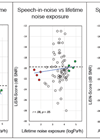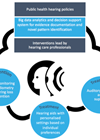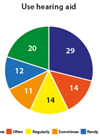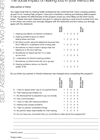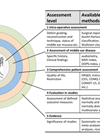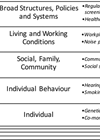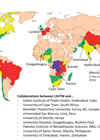Audiology features
Hidden hearing loss in humans: cochlear synaptopathy is superseded by cognitive effects when listening to speech in noise
Elizabeth Beach presents an overview of the recent research being undertaken at the National Acoustic Laboratories on speech in noise and its relationship to cochlear synaptopathy. Our team at the National Acoustic Laboratories (NAL) has been investigating hidden hearing loss...
EVOTION: Big data supporting public health policies for hearing loss
Big Data? Biosensors, smart hearing aids and smartphones? The EVOTION Project has it all and more! What will this project tell us about the future of hearing management? Doris-Eva Bamiou, Giorgos Dritsakis and Louisa Murdin, members of the EVOTION team,...
Developing outcome measures for research
There are challenges in developing outcomes measures; Professor Hall presents five top pointers for making rapid progress in developing outcome measures for research purposes. Anyone who has worked clinically with hearing loss will appreciate that every patient’s experience is personal....
Hearing aid outcomes in older adults: what and when to measure
What matters to older adults when purchasing a hearing aid? Larry Humes explores the domains that should be measured for this key group. This article identifies key domains of hearing aid outcome in older adults. Increasingly, third-party payers and private-pay...
The basis of the bargain: outcomes not inputs
There are international drivers focusing our attention on measuring outcomes; Anthony Hogan looks at the data to see how we are currently measuring up. Introduction A global paradigm change is impacting on the provision of disability services. At its heart,...
Measuring client-centred outcomes in audiology: towards a parsimonious solution
From an international driver to the client-centred care model; in this article Anthony Hogan explores outcome measures for individual goal setting and measuring those outcomes. Introduction When people present for hearing help, they are typically looking for solutions to the...
Measuring audiological outcomes in the paediatric setting
In this article Marlene Bagatto argues that a range of outcome measures and instruments need to be implemented when working with children and families. She demonstartes how these support both clinicians and families. The primary goal of early hearing detection...
Health related quality of life measures as outcome parameters in middle ear diseases
Surely the only outcome needed for post-surgical ears is a better PTA? Marcus Neudert argues there should be more to it than that. To draw a comprehensive picture of the disease-associated restrictions in patients with chronic otitis media, audiometric outcome...
The mounting burden of hearing loss worldwide: gearing up global collaboration
As audiology and ENT professionals we all have an inkling about the prevalence and impact of hearing loss, but the true gravity of the situation is even greater than previously thought… It may seem hard to believe, but in the...
The role of public health in addressing age-related hearing loss
Prevention and treatment of hearing loss needs to be viewed through a public health lens, but what does that look like? Kelly Reavis and colleagues explain the steps to addressing hearing healthcare from a public health perspective and why this...
World Health Assembly adopts a resolution on hearing loss: a defining moment for the global hearing health community
The World Health Assembly recently adopted a resolution on hearing loss. In this article Shelly Chadha and Alarcos Cieza outline how the resolution came to be and how the World Health Organization and its partners plan to implement it. The...
Public health planning for hearing impairment (2017)
In 2009 Professor Andrew Smith and Dr Daksha Patel identified the need for awareness of public health methods in hearing healthcare planning. In 2010 the first training course was held, and since then 760 health workers from 41 countries have...


